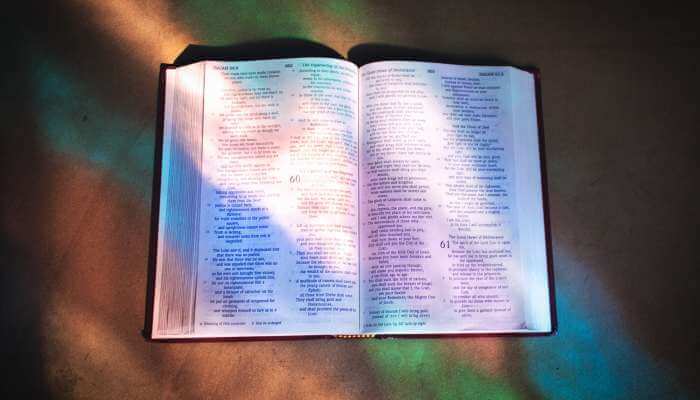Read Time: 4 Minutes, 45 Seconds
Is the church judging prophecies today?
Since prophecy was an expression of a person who was filled with the Spirit or upon whom the Spirit came in the Bible, it is clear that utterance is a logical, spontaneous outflow and expression of the Spirit. Prophecy is the voice of the Spirit. The Spirit uses human voices that are yielded to Him. As leader of the church, He desires opportunities to speak to His people. The gift of prophecy among Spirit-filled people allows Him to do so.
Through the medium of prophecy, other gifts find expression. Wisdom must be voiced. So, prophecy is the voice through which wisdom speaks. Faith must be spoken to be effective. So, prophecy is the voice by which faith speaks. The same is true with the word of knowledge and discernment of spirits. But there are times when prophecy functions independently of other gifts.
To prophesy means “to speak for another.” John the Baptist, the greatest of prophets, was a “voice crying in the wilderness.” Prophecy is voiced in one’s own language and is the divine ability to forth-tell and foretell. Prophecy edifies, exhorts and comforts (1 Cor. 14:3-4, and 31). The Spirit used the New Testament prophet as a voice to edify His church. The Spirit uses the gift of prophecy to strengthen the saints, increase their faith and develop character.
Prophets are not compelled to speak, but are inspired by the Spirit and are given the message and/or the words to say. However, as we are told in 1 Corinthians 14:32, the prophets can control their own prophetic spirit. Therefore, they can add to the Spirit’s words, or they can give only part of the message. This is why Paul said that a church must judge the message (1 Cor. 14:29), and John Wimber taught, based on his analysis, that on average about 80% of each prophetic message is accurate. The remainder would be of the flesh.
It is easy to allow one’s own feelings or desires to enter into a message, even though that message originated from God. It is a false reverence which accepts anything and everything which purports to be a divine message from God. Paul warns us, “Do not despise prophecies. Examine all things. Firmly hold onto what is good” (1 Thess. 5:20-21). So we must dispense with what is not good.
The Spirit distributes spiritual gifts to be used for the moment to edify the church. He does not give them for believers to possess all the time. Once the gifting is released by the giver (the Holy Spirit) through the gifted (the believer) and shared with the body of Christ, the gifted no longer possesses it. He or she used the gift when prompted by the Spirit.
Prophetic gifts are not exclusively to predict future events. An important part of prophecy is the revelation of divine truth and the disclosure of spiritual or material realities which could not be known by natural means. The English verb, ‘prophesy,’ is represented in the Greek New Testament by ‘propheteuo,’ which has a double signification—’to predict and to expound’ publicly. Both meanings apply ideally to the New Testament prophet who is not only a foreteller of events, but also a supernaturally illuminated expositor of sacred truths.
The prophet is instrumental in bringing divine guidance, admonition, rebuke, confrontation, embarrassment or comfort. Sometimes a prophet speaks to the people or to the enemies of God. The prophet may reveal sacred mysteries. The Spirit fuses with the human spirit when He moves Spirit-filled believers into the realm of the prophetic. This signifies that they neither live in the realm of the prophetic permanently nor possess such a gifting all the time. The one to three believers who are selected by the Spirit in a worship service to receive a gift of prophecy for the body are not necessarily prophets in the Old Testament sense of what a prophet was. However, such prophets exist today. These are vocational prophets.
A vocational prophet is often marked by making believers uncomfortable and being quite unpopular, hated, societal outcasts, slandered and even murdered when society permits as in the Old Testament.
This poem “The Prophet” illustrates the isolated life of some genuine vocational prophet:
The prophet was sleeping
On the sidewalk one day;
And when he awoke,
‘Twas already Sunday.
He did go to church,
A site to behold;
They welcomed him not,
As he had foretold.
The pastor did lie,
About the old man;
A hypocrite true,
He ought to be banned.
The homeless prophet
Fell ill and had died;
Was taken to heaven,
As he prophesied.
So, is the church judging prophecies today as commanded? Watch and see as you worship together. Then perhaps you might be able to make that determination.
Listen to the full episode of “The Gifts of Healing, Workings of Miracles, Gift of Prophecy, Discernment of Spirits” with Chaplain Jim Linzey on the Charisma Podcast Network here.
Bring Charisma magazine home with a subscription today!
James F. Linzey, D.D. received a Bachelor of Arts degree in Biblical Studies at Vanguard University of Southern California, and a Master of Divinity degree at Fuller Theological Seminary. While there, he studied Church Growth, and Signs & Wonders under John Wimber. He served on John Wimber/s large ministry team at the Vineyard of Anaheim. He authored numerous articles and books, including “The Holy Spirit,” “A Divine Appointment in Washington, DC” and with Charisma author Verna M. Linzey co-edited “Baptism in the Spirit” by his father, Stanford E. Linzey, Jr. He mastered Koine Greek at Westminster Theological Seminary and is the chief editor of the Modern English Version Bible translation. He hosts The Baptism with the Holy Spirit on the Charisma Podcast Network. And he moves in the gifts of the Spirit and the prophetic realm as the Spirit wills.












































